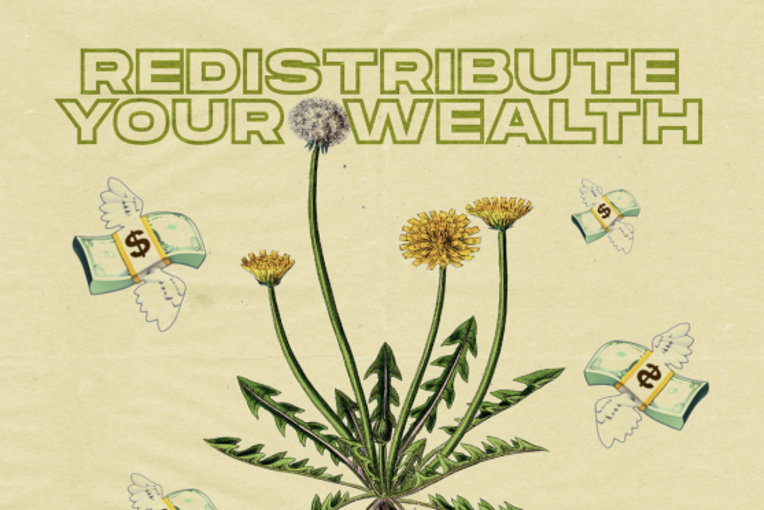Last year, I worked with fellow members of the Black Solidarity Economy Fund Working Group to raise money and direct unrestricted funds to Black-led organizations working to build the solidarity economy. This short personal essay includes some reflections from my time as a member of the Narrative and Governance committees and as a Black Solidarity Economy Fund Coordinator.
When New Economy Coalition (NEC) members received an email from Black staff at NEC asking if we were interested in raising funds for Black-led solidarity economy organizations, there was agreement amongst the group that public funding commitments from philanthropic organizations should be leveraged to move capital into radical, Black-owned cooperatives and Black-led organizations.
NEC staff members led the group through an exercise in which we collectively decided on goals for the Black Solidarity Economy Fund and our capacity to fundraise. Those of us who expressed an interest in ensuring funds were allocated in an equitable manner and could meet more regularly signed up to join the Governance Committee.
The Narrative Committee drafted a letter to the New Economy Coalition network to explain the motivation behind launching the Black Solidarity Economy Fund.
Why now?
In the wake of protests against police brutality, we saw companies pledge to invest in Black communities and racial justice work.

While companies who made an increased profit during the pandemic also made these empty pledges, radical Black-led cooperatives and Black-led organizations working to liberate land, transform and restore food systems, and build the solidarity economy continued to search for sources of funding.
As the Black Solidarity Economy Fund Working Group and NEC staff pointed out in the letter:
…the tireless work and innovative ideas of Black organizers have proven that another world is possible. Black cooperative economics — particularly efforts led by Black women — have delivered justice, prosperity, and security when it has been systematically denied to Black communities. All this has occurred despite a system that denies Black communities privileged access in the realm of funding, ideas, leadership, and capacity-building… Guided by a sincere desire to take immediate concrete steps towards rectifying this inequity, we are now acting to redistribute the power of money and ideas by investing a portion of our budget to support the power of Black-led organizations, organizers, and ideas — which are too often ignored, silenced, and appropriated.

Here are three key lessons I learned from the process of collectively raising and distributing unrestricted grants to Black-led cooperatives and Black-led organizations that are working to strengthen their local economies.
- An effective infrastructure for quickly evaluating intake forms and disbursing funds to organizations on the ground is critical and must be set up immediately.
Moving money intentionally is not simple. It requires a significant amount of planning, labor, and, more importantly, time. Each member of the Black Solidarity Economy Working Group Governance Committee helped lead this funding effort in addition to their day jobs. Finding the time to meet, work through tasks collectively, and push this work forward, in addition to working our regular day jobs, was by far one of the biggest challenges to moving forward more quickly. Thankfully, the New Economy Coalition plans to have a dedicated staff member during the next round of funding who can help project manage the Fund and provide support to members of the working group. - The process must include transparency. And there needs to be a balance between transparency, and self-determination.
Since the process was led by volunteers who also worked other jobs, and this was our first time fundraising for this fund, it took longer than we originally anticipated. Many of the decisions that we arrived at for our criteria took months for us to agree on. We scheduled countless meetings and dedicated many hours, including some late nights, to establish clear criteria and a voting process, tally votes, and communicate the results to the Governance committee to ensure there were no objections. Throughout, we made sure to communicate our progress and give updates to other Network members along the way. - There is a vast need for funding amongst cooperatives and organizations who are working to build the solidarity economy, and not nearly enough grants or financing opportunities.
Thirty-eight organizations applied for funding. Due to limited funds, we were unable to provide grants for every applicant, which was our initial hope. We created clear criteria to reflect the original intention of the Black Solidarity Economy Fund, but we also recognize solidarity economy work in general, let alone Black-led solidarity economy work, is extremely underfunded. Yet, it plays a critical role if we are to shift away from an extractive economy to more regenerative models of existence. We hope to see continued investment in Black-led cooperatives and solidarity economy organizations. And, we hope to see even more funds shifted away from extractive business models and into worker-owned cooperatives, democratically controlled community funds, and other vehicles for building communal wealth and creating pathways to a people’s economy.
With just a small group of volunteers and a few dedicated staff members, we were able to raise a quarter of a million dollars for Black-led solidarity economy organizing work. We nimbly organized to disburse $150,000 of those funds to 21 Black-led organizations in 2022.
Imagine how much more capital can be directed into radical Black-led worker-owned cooperatives, community land trusts, and other solidarity economy organizations if this work is sustained and continuously invested in over the years.
Three things you can do right now
- Find out more about the New Economy Coalition, which is made up of more than 200 organizations building the solidarity economy in the United States and showing that another world is not only possible–it’s already happening.
- Help promote this article by sharing these posts on Twitter, Facebook, and LinkedIn. Sign up here for email alerts when articles like this are shared on social media.
- Join NEC’s solidarity circle and become a monthly donor.
Teaser photo Graphic from New Economy Coalition





